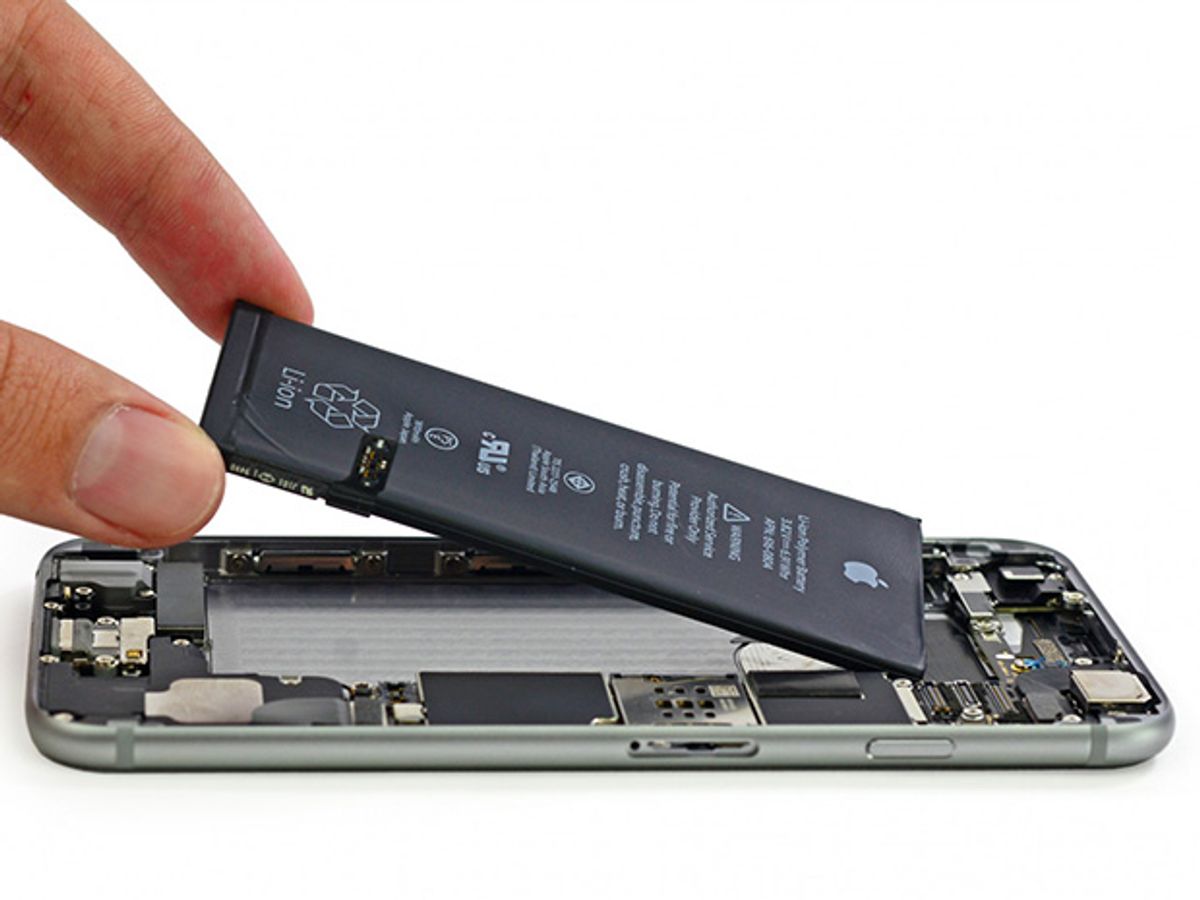A smartphone powered by a fuel cell that can run for an entire week without recharging sounds absolutely amazing. The Telegraph is reporting that a British fuel cell company called Intelligent Energy has managed to stuff a fuel cell inside of an iPhone 6, allowing the phone to run for an entire week on a single charge.
Sort of.
As with anything that sounds absolutely amazing, it's not that simple, and the truth is likely not something that's worth getting excited about at all.
First, we should clarify exactly what the rumor is: Intelligent Energy has apparently developed a fuel cell that's small enough to fit inside of an iPhone 6. We assume they made room by shrinking rechargeable the battery a bit (since that's the only thing that you can easily shrink). What Intelligent Energy has not done, as far as we can tell, is develop a way to store the hydrogen that powers the fuel cell inside of an iPhone 6. A fuel cell is just the bit that turns hydrogen into electricity, and by itself, it doesn't store any energy at all.
It's understandable that there is some confusion about this, because the source article leads with this very exciting but not entirely true sentence:
"A British technology company has claimed a major smartphone breakthrough by developing an iPhone that can go a week without recharging, running instead off a built-in hydrogen fuel cell."
And then follows up with much some more realistic information later on:
"For the commercial launch the company is developing a disposable cartridge that would slot into the bottom of future smartphones and contain enough hydrogen-releasing powder for a week of normal use without recharging."
What it sounds like Intelligent Energy has is a very flat fuel cell that can convert hydrogen to electricity inside a phone to charge the phone's existing lithium-ion battery. This is pretty cool, but to get it to work, you'll still need to carry around a cartridge of hydrogen.

You can think of this cartridge simply as an external battery pack. To put this in perspective, An iPhone 6 has a 1,800 milliampere-hour battery; if you want to recharge it once a day for a week, you'll need 12,600 mAh. A 13,000 mAh external battery pack with actual batteries in it that you can recharge from a wall socket will run you about $30, and is a bit larger than a typical smartphone.
By way of comparison, we can look at the fuel cell charger that Intelligent Energy already sells. It's called Upp; it costs $230, and each cartridge, which should charge a smartphone about five times, costs $10. It's also kind of huge:

Take the black fuel cell part of the Upp, stuff that into an iPhone 6, and then plug the grey hydrogen cartridge into the phone to charge it and you've got the idea of what Intelligent Energy has come up with.
The question you may be asking now is, why on Earth would anyone want what is essentially a very expensive, overly bulky, and relatively inefficient external battery pack for your phone that only accepts spendy disposable batteries that you have to go to a special store to get?
That's an excellent question.
Intelligent Energy has some answers that are common to hydrogen fuel cells in general: the fuel cell itself doesn't degrade like a conventional battery does, and the hydrogen fuel is stable for about a decade. If you like to go on extended camping trips, or are preparing for the apocalypse, hydrogen may be a better bet than batteries. It's also more environmentally friendly, since the total system lasts much longer than a battery pack does.
However, it's also true that right now, the benefit to most consumers is marginal at best. You're simply better off with a battery pack that you can charge from any wall socket and that can power all kinds of devices. I hate to say this, because I love the idea of hydrogen fuel cells, but for the moment, the technology just doesn't make a lot of sense for most of us.
Intelligent Energy is betting that fuel cells will take off in places where reliably plugging into a wall socket might be a problem, like India. The company is planning on replacing up to 26,000 diesel generators that provide backup power to Indian cellphone towers with fuel cell generators. The Indian electric grid is often in shambles, and this affects consumers as well. If Intelligent Energy can establish the necessary distribution infrastructure, and cut costs enough through technological development and volume, offering grid-free charging in India and other parts of the world with unreliable grids could be huge.
As far as Apple's involvement, it's all speculation, but it wouldn't be crazy to think that Apple is interested in reaching consumers in India and elsewhere. If the company can offer a means to charge a smartphone even when electricity is unavailable, that could be a unique and very valuable feature.
Evan Ackerman is a senior editor at IEEE Spectrum. Since 2007, he has written over 6,000 articles on robotics and technology. He has a degree in Martian geology and is excellent at playing bagpipes.



